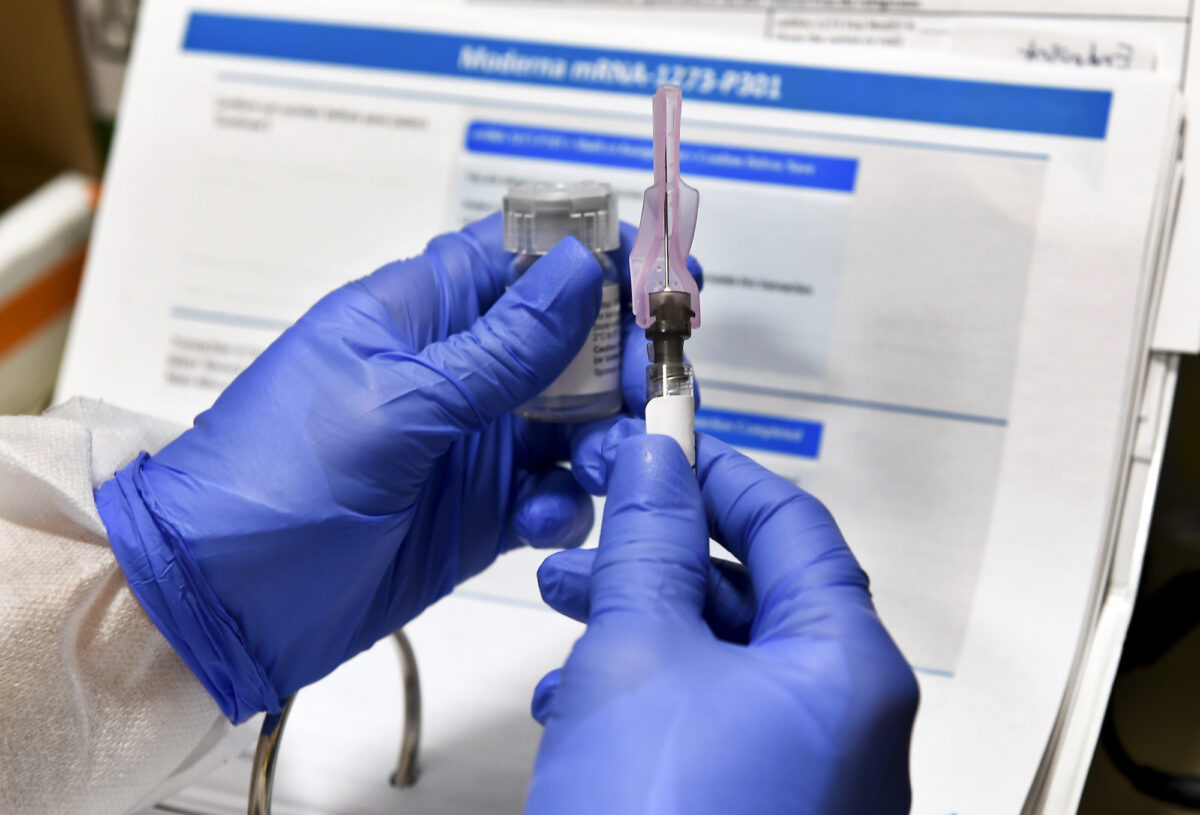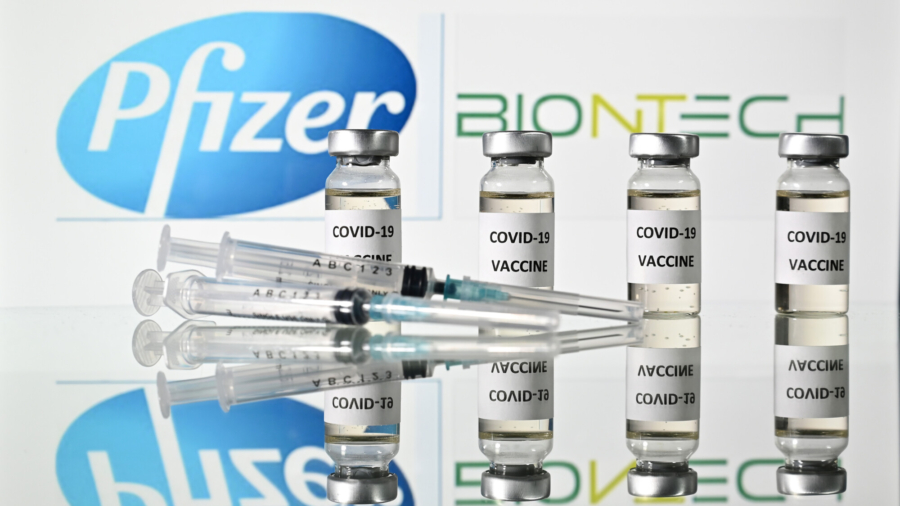Pfizer and partner BioNTech on Friday submitted an application to the Food and Drug Administration (FDA) for emergency use authorization of their experimental CCP virus vaccine, making them the first to seek such approval.
“It is with great pride and joy and even a little relief that I can say that our request for emergency use authorization for our COVID-19 vaccine is now in the FDA’s hands,” Pfizer CEO Albert Bourla said in a video shared on Friday. “This is a historic day, a historic day for science and for all of us. It took just 248 days to get from the day we announced our plans to collaborate with BioNTech to our FDA submission day,” he added.
Pfizer said in a Nov. 20 press release that an application for an emergency use of its vaccine candidate, called BNT162b2, “will potentially enable use of the vaccine in high-risk populations in the U.S. by the middle to end of December 2020.”
The experimental vaccine showed an efficacy rate of 95 percent and no serious safety concerns, according to Pfizer. The vaccine requires two doses several weeks apart, with protection from the CCP (Chinese Communist Party) virus achieved 28 days after the first shot.
“Filing in the U.S. represents a critical milestone in our journey to deliver a COVID-19 vaccine to the world and we now have a more complete picture of both the efficacy and safety profile of our vaccine,” Bourla said in a statement.

The Infectious Diseases Society of America (IDSA) called Pfizer’s application to the FDA an encouraging development, but noted the need for continued study to confirm safety and efficacy.
“While encouraging data from the Pfizer/BioNTech COVID-19 vaccine trial indicate the welcome possibility of a critical new tool against the pandemic, a comprehensive, transparent review of data, including evidence that the vaccine has been studied in diverse populations, remains essential to ensure its safety, effectiveness, and acceptance,” said IDSA president Barbara Alexander in a statement.
“If emergency use authorization is granted, clinical trials and data collection must continue,” she said, adding that measures like social distancing, mask-wearing, and frequent hand-washing “will remain crucial.”
Pfizer and BioNTech said in a statement they are “committed to developing this novel vaccine with preclinical and clinical data at the forefront of all their decision making,” and that they stand ready to begin distribution of the vaccine “within hours after authorization.”
The companies said they expect to produce up to 50 million doses in 2020 and up to 1.3 billion doses by the end of 2021.
Moderna is expected to be the next company to petition the FDA for an emergency use authorization of its experimental COVID-19 vaccine. An initial analysis of data from its late-stage trial showed the vaccine was 94.5 percent effective, with final results and safety data expected in the coming days or weeks.

Anthony Fauci, director of the National Institute of Allergy and Infectious Diseases, said at a Nov. 19 Coronavirus Task Force press briefing that the accelerated vaccine development process did not cut corners on safety. He also sought to allay concerns people may have about taking the vaccines if they’re ultimately approved.
“The process of the speed did not compromise at all safety, nor did it compromise scientific integrity,” he said. “It was a reflection of the extraordinary scientific advances in these types of vaccines, which allowed us to do things in months that actually took years before.”
Fauci said an “independent body of people who have no allegiance to anyone, not to the administration, not to me, not to the companies, that looked at the data and deemed it to be sound,” adding that both the FDA and a vaccine advisory panel would evaluate the emergency use authorization application before giving it a final nod.
“So we need to put to rest any concept that this was rushed in an inappropriate way,” he said, adding, “this is really solid.”
Both the Pfizer/BioNTech and Moderna vaccines work using a new technology to trigger an immune response known as synthetic messenger RNA that can be produced at scale much more quickly than traditional vaccines.
Of dozens of drugmakers and research institutions racing to develop COVID-19 vaccines, the next late-stage data is expected to come from AstraZeneca, which is working with the University of Oxford, in November or December.
Johnson & Johnson said it expects to have data needed to seek U.S. authorization for its experimental vaccine by February.
On Thursday, the single-day death toll attributed to the CCP virus surpassed 2,000 for the first time since late June, while the seven-day rolling average of daily new infections reached more than 165,000.
The number of patients hospitalized with COVID-19 has jumped nearly 50 percent in the past two weeks, with more than 81,000 people being treated for the disease in hospitals as of late Friday.
Reuters contributed to this report.
From The Epoch Times


